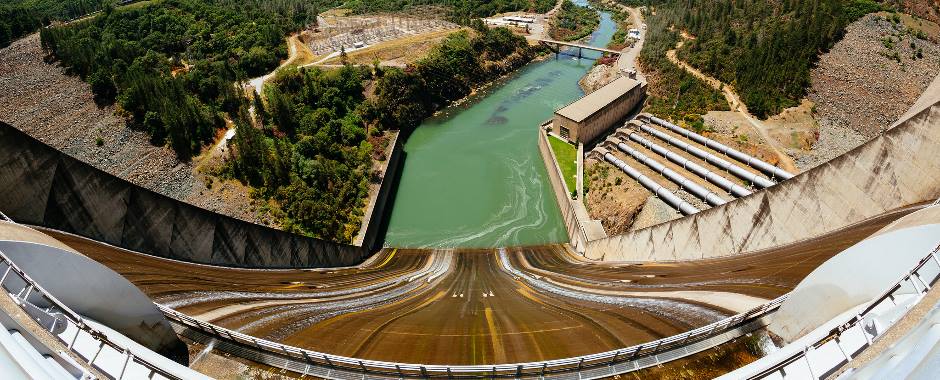A few months ago, I presented the findings of a new book, The Water-Food-Energy Nexus: Power, Politics and Justice, to an International Water Association conference on the same topic at Salerno. To my great surprise, I was the only social scientist out of 200 participants.
Nexus approaches help to bridge the separate domains of water, energy and food to highlight the links and interactions between them. For example, hydroelectric dams are obviously sources of energy, but they need (and use) water for it, with knock-on effects for food – changing the conditions for irrigation, fishing or groundwater – in the areas where they operate. So, anyone responsible for large projects, including in developing countries, can use the Nexus to make decisions and think through what problems or synergies they might create.
So for many engineers and environmental economists, who made up most of the audience, the Nexus is an exciting new idea. It presents them with the practical challenge of modelling ever more complexity and interactions between the resources they work with. In fact, the Nexus is becoming so engineering-dominated that our new book is sold on Amazon under the topic of civil engineering!
Problems with the Nexus
But social scientists confront the idea of the Nexus with more scepticism. Firstly, history tells us that complex ideas of policy integration have often failed. Approaches like Integrated Water Resources Management, integrated coastal zone management, integrated rural development, One Health and multisectoral nutrition (to name a few) have promised to tackle the links and interactions between different sectors, but they have not always been successful. Why would the Nexus be different?
The idea of the nexus is also viewed as a dangerous idea. Using Nexus approaches in planning could open the way to the further financialisation and securitisation of key strategic resources: water, energy and food. And for whose benefit? Some commentators see the nexus as a way for large multinationals to better operate their supply chain; and as a policy idea which ignores wider environmental justice issues, for example resource access for the most vulnerable. It reflects the growing importance of private players in resource management, and the extent to which these actors are encroaching on global public goods.
Of course, for others, the Nexus is a way to address the resource management problems that especially arose after the global food, energy and financial crisis in 2007 / 08. This was the moment that the Nexus, as articulated by the World Economic Forum, emerged.
However, are those now championing Nexus approaches really interested in transforming the system, or just tweaking it? Current practices, interests and technological pathways create path-dependencies, with each sector (water, food, and energy) adopting the rhetoric of the nexus without properly rethinking its relationships and interactions with the other two.
Hope for the Nexus?
Despite these criticisms, there are ways that scepticism of the Nexus could be replaced by optimism. But for this to happen, some key questions need to be raised.
Who is aiming to benefit from integrating these approaches to resources? Which methods and approaches are being applied – beyond expert/scientific-led methods, to transdisciplinary methods where local and experiential knowledge are part of the mix? How can plural options and outcomes be explored – where a range of approaches can be tried or tested? How can ethical questions, including those of justice and power, be brought up front in decision-making? How can different values and moral judgements be compared or discussed, when deciding how resources are allocated and accessed?
These questions go way beyond the technical focus in engineering or environmental economics, or the mere search for efficient or effective solutions. But in many ways, they are central to making the Nexus work as an idea. Technical solutions may appear to succeed, but come up against politics, values and power, or lead to exclusion. This may mean that apparently successful projects badly miss their aim of providing greater well-being and sustainability.
The answer may lie in greater engagement with local communities themselves, at the front line of the Nexus. People in all kinds of environments – from rural farmers to people in heavily industrialised places – already have to manage complex intersections between water, energy and food in their everyday lives. They will often have insights to offer that are highly specific to a place where a new project might be planned. In these settings, social scientists and engineers could work together with local people in more sensitive ways to challenge their own disciplinary biases and make decisions that will work for the long term.
Buy the book / download a sample chapter
The Water-Energy-Food Nexus: Power, Politics and Justice
Jeremy Allouche, Carl Middleton and Dipak Gyawali
Routledge, April 2019
Review
The Water-Energy-Food Nexus
Review by François Molle, Institut de Recherche pour le Développement (IRD)
Video: What is the ‘Nexus’?
Jeremy Allouche explains the origins and critiques of the Nexus, and how engaging with local communities can help to address the dilemmas it presents.
